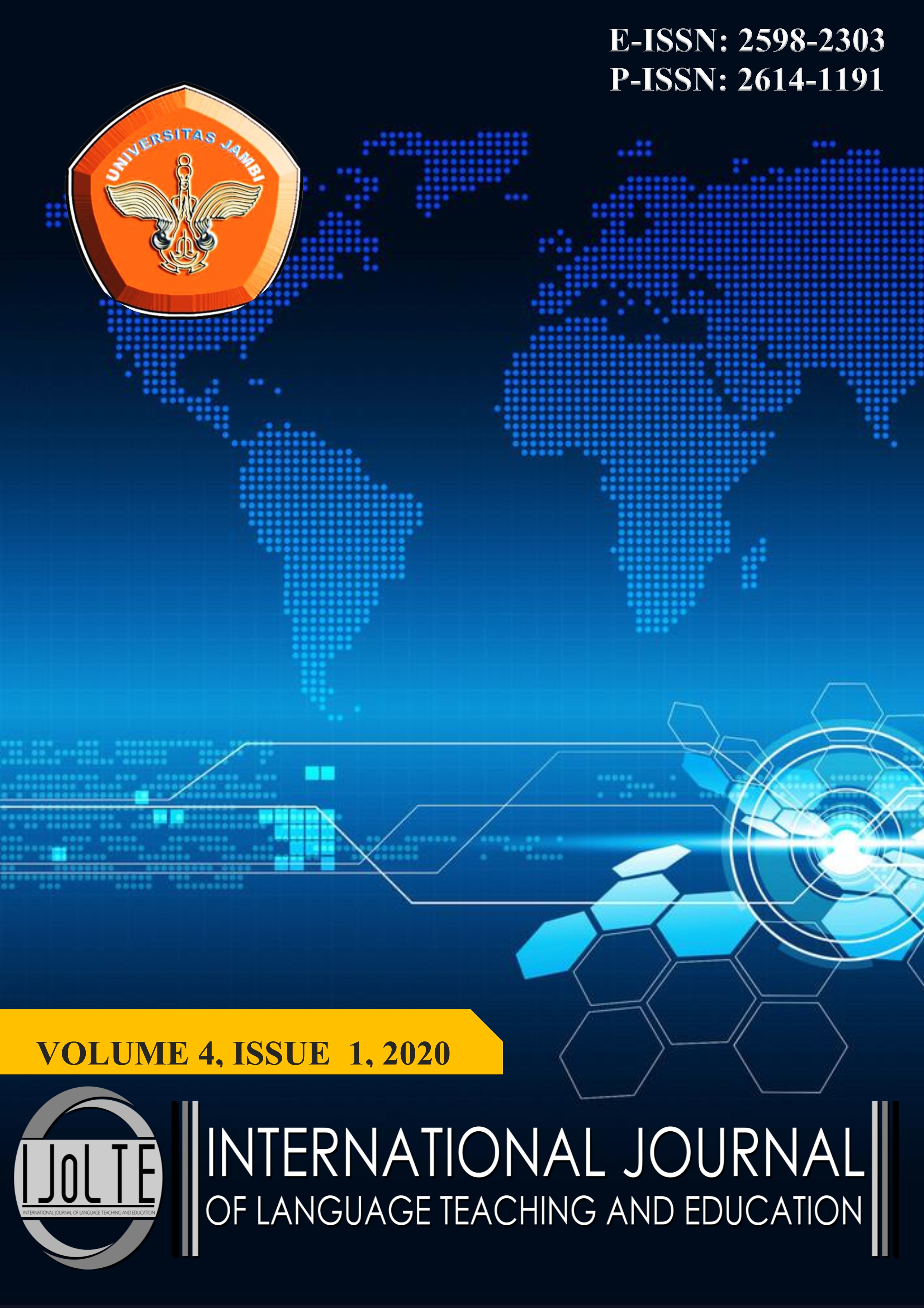A Problem-based Learning Approach and Its Effects on the Writing Performance of Nigerian Undergraduates
DOI:
https://doi.org/10.22437/ijolte.v4i1.8750Keywords:
ESL classroom, PBL, writing instruction, NigeriaAbstract
Writing is considered as an important but a difficult language skill for undergraduates. To develop writing skills, undergraduates need to be given the opportunity to interact with and help one another in the writing process. They also need to be supported by teachers in the process. However, most of the traditional teaching methods adopted by writing instructors in Nigeria do not allow students to interact in the learning process. In this light, this study investigates the effects of a problem-based learning approach (PBL) on the writing performance of Nigerian undergraduates. The study employed a pre- and- post-treatment quasi-experimental research design. The participants (n=18) involved in the study were an intact class of second-year students taking English composition course and two tutors in a college in North-eastern Nigeria. The study was conducted over a period of 12 weeks. To determine the effects of PBL on the participants’ writing performance, a rating scale was used to rate the content, organisation, vocabulary, grammar and mechanical accuracy of the pre- and post-treatment writing scripts. A paired-sample t-test analysis was run to compare the mean scores of the undergraduates’ pre- and post-treatment writing. The results showed significant improvements in all the components (content, organisation, vocabulary, language use and mechanics) of the participants’ writing in the post-treatment. The paper concludes with a discussion on the pedagogical and theoretical contributions of the findings. It provides writing instructors with a student-centred approach that would help to develop their students’ writing skills.
Downloads
Downloads
Published
How to Cite
Issue
Section
License
The Authors submitting a manuscript do so on the understanding that if accepted for publication, copyright of the article shall be assigned to International Journal of Language Teaching and Education (IJoLTe) and Magister Program of English Education Department, Universitas Jambi as publisher of the journal. Copyright encompasses rights to reproduce and deliver the article in all form and media, including reprints, photographs, microfilms, and any other similar reproductions, as well as translations.
IJoLTe keep the rights to articles that have been published. And, the authors are permitted to disseminate published article by sharing the link of IJoLTe' website. Authors are allowed to use their works for any purposes deemed necessary without written permission from IJoLTe with an acknowledgement of initial publication in this journal.
IJoLTe and Magister Program of English Education Department, Universitas Jambi, and the Editors make every effort to ensure that no wrong or misleading data, opinions or statements be published in the journal. In any way, the contents of the articles and advertisements published in IJoLTe are the sole and responsibility of their respective authors and advertisers.
If the article was jointly prepared by more than one author, any authors who submitting the manuscript warrants that he/she has been authorized by all co-authors to be agreed on this copyright and license notice (agreement) on their behalf, and agrees to inform his/her co-authors of the terms of this policy. IJoLTe will not be held liable for anything that may arise due to the author(s) internal dispute. IJoLTe will only communicate with the corresponding author.
By submitting the article/manuscript to this journal, the authors agree with this policy and consciously agree that IJoLTe does not provide royalties or other fees to the authors for their published articles. By agreeing this policy, IJoLTe ensures that published articles are publicly accessible and will be free of charge for the readers. No specific document sign-off is required.
Users of this website will be licensed to use materials from this website following the Creative Commons Attribution 4.0 International License. Please use the materials accordingly
You are free to:
- Share — copy and redistribute the material in any medium or format
- Adapt — remix, transform, and build upon the material for any purpose, even commercially.
- The licensor cannot revoke these freedoms as long as you follow the license terms.





